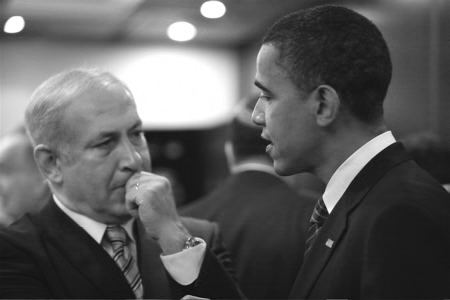 When it comes to cutting a nuclear deal, Tehran has to be convinced that Iran will be punished if it reneges on a deal and rewarded if it complies. The solution to that problem rests in the currently troubled US–Israeli alliance.
When it comes to cutting a nuclear deal, Tehran has to be convinced that Iran will be punished if it reneges on a deal and rewarded if it complies. The solution to that problem rests in the currently troubled US–Israeli alliance.
The ability to determine if Iran is complying with a deal hinges upon both the International Atomic Energy Agency’s (IAEA) ability to monitor Iran’s progress towards denuclearisation and reliable intelligence—neither of which is foolproof. Many skeptics fear that as Iran’s economy recovers from years of mismanagement and isolation, the hardliners will use their country’s newfound largesse to refuel their nuclear program. They rightly point out that once the sanctions regime is unwound it will be harder to put back together again. International businesses benefiting from access to Iranian markets will lobby hard against sanctions being reimposed even if Iran is caught cheating.
The instruments that the most significant actors in the region have at their disposal vis-à-vis Iran allow them to take different parts in the same play. Many continue to believe—mistakenly—that any settlement rests upon the Americans doling out sticks while the French and the Russians serve up the carrots. However, one Great Recession and two quagmires later it’s time for a change in roles.
A bad cop working with an even worse cop leads criminals to ‘lawyer up’. In the context of the ongoing negotiations with Iran, such a combination compels Tehran to race for the bomb harder than before. The accused can easily exploit two good cops. But a (moderately) bad cop paired with a (moderately) good cop can be a potent combination for coercive diplomacy.
The most effective bad cop is one that can credibly commit to the use of force. As pointed out in Leon Panetta’s recent memoir, Barack Obama damaged the US’s credibility when he drew a red line in relation to Syria’s chemical weapons attacks, then erased it. But that’s not a problem for Benjamin Netanyahu. When the latter makes a threat, he keeps it (for example, Israeli strikes in Syria). If we assume for the moment that Israel carried out a strike on the Parchin facility, that further demonstrates Bibi is perfectly positioned to dispense punishments. Although several hawkish figures in the governing coalition openly criticised his handling of last summer’s Gaza War, Netanyahu does not currently face a serious challenger within or outside his government. Even if he were to withdraw from politics, a conservative constellation of forces is likely to remain in power in Israel for some time, meaning that whoever succeeds him would be equally likely to strike Iran should it attempt to cross the nuclear Rubicon.
The US is still wary of using force after its gruelling experiences in Iraq and Afghanistan. The Obama Administration certainly can’t be accused of having knocked ISIS off its feet. But that puts it in a stronger position to play the good cop. The US can offer Iran sanctions relief and access to world markets; Israel cannot. Furthermore, the US can provide Iran with an ‘exit option’ vis-à-vis Russia. During the November 2013 talks in Vienna, an Iranian negotiator bluntly stated, ‘We don’t want to be dependent on Russia for the lifetime of Bushehr’.
There are many reasons to be skeptical that a deal will be reached in November. It may prove an irony of history that in order for one of Barack Obama’s primary foreign policy goals to succeed, he will need to rely on Benjamin Netanyahu.
Albert Wolf is an Israel Institute Fellow at the Leonard Davis Institute for International Relations at Hebrew University of Jerusalem. Edited image courtesy of Flickr user Barack Obama.

